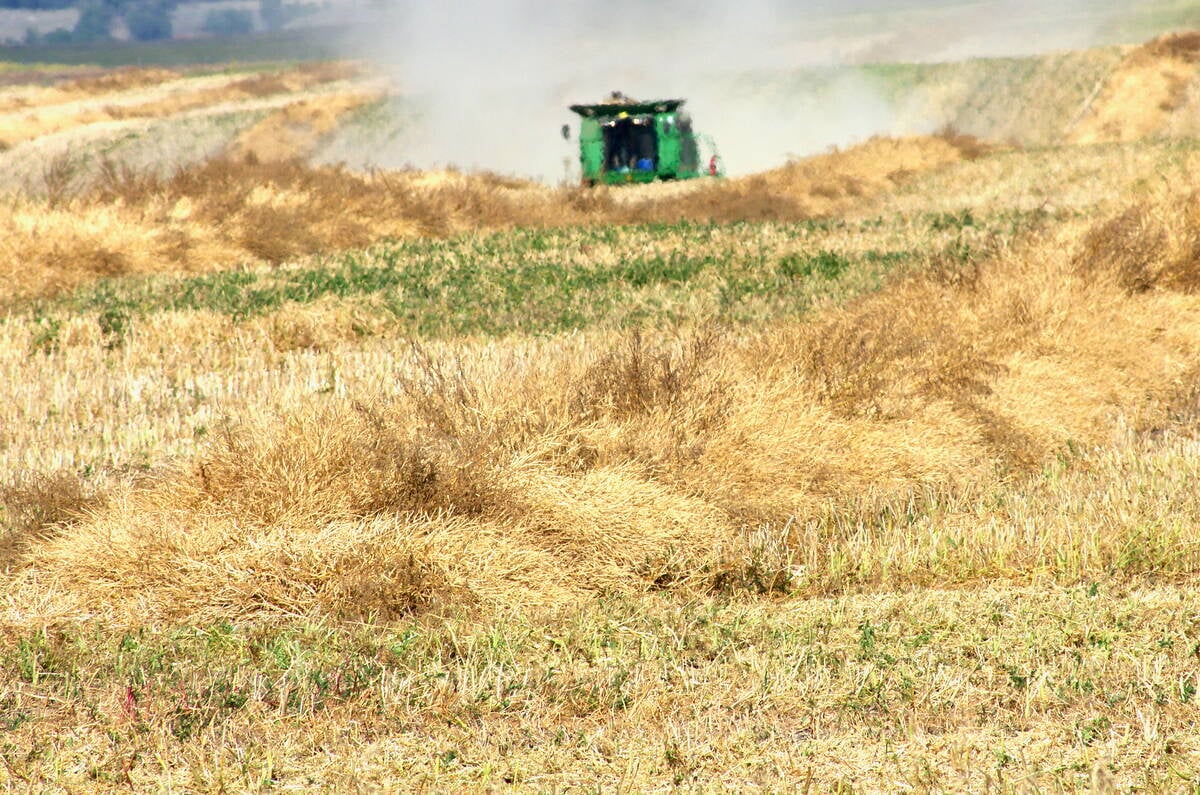HONG KONG – On a sunny December day while hundreds of South Korean rice farmers were in full and sometimes violent voice protesting World Trade Organization talks on downtown city streets, Hong Kong Island farmer Kwok Ko was living a more peaceful scene.
The 79-year-old vegetable farmer was on his land 30 kilometres north, hoeing his crop and praising his decision five years ago to go organic.
“In the past, I was getting very low prices for my vegetables,” he said. “Now, the prices are better, the market is good.”
Read Also

Manitoba searches for Plan B on canola oil exports
A new report explores Manitoba’s current canola oil trade and possible alternative markets to the U.S.
Prices in fact are at least four times higher, although costs also have
risen.
Kwok, chair of his local farmer co-op, is a leader in efforts to increase local organic production as a way to capture a niche market and a higher price in the massive market that is Hong Kong’s seven million consumers.
He also is part of an unlikely farm community. More than 2,000 farmers are scattered around one of the most populous islands in the world, often within sight of the skyscrapers that dominate Hong Kong’s skyline.
They were not in evidence at the WTO protests against freer trade, concentrating instead on how they can find a niche that will help displace some of the massive imports from mainland China.
“Farmers here are very small, typically an acre or less, and with very basic tools, but they also are very intense and produce a lot per acre,” said Michael Cheng, an agricultural officer at the Tai Lung experimental farm that promotes better practices and increased production on Hong Kong farms.
“But there is a real potential for growth in the city market. Particularly through our program of organic certification and identification as local production that follows environmental and food safety rules. There is a demand and a premium price, replacing produce from the mainland.”
The Tai Lung experimental station is the only government-supported crop and vegetable research farm left on the island that was transferred from British to Chinese rule in 1997. It provides research on crops suitable for the island soil and climate, extension advice and equipment loans for farm operations too small to invest in small tractors.
Cheng estimated that local production supplies only five percent of the 1,700 tonnes of vegetables consumed in Hong Kong each day. He imagines that percentage growing as local farmers involve themselves in quality control and local production marketing.
A few decades ago, local produce supplied 30 percent or more of local consumption but since then, the Hong Kong population has grown and less-regulated produce from the mainland has been flooding the island.
Cheng said the average age of Hong Kong farmers has been increasing as the lure builds from one of the world’s great commercial cities.
He dreams of a time when young people are attracted back to the land because of lifestyle and good income from in-demand food products.
Kwok both symbolizes and defies the trend of an aging, diminishing farm population and yet holds hope for the future.
He symbolizes the decline by conceding that his children have long left the land for the bright lights of the nearby metropolis.
Beside his acreage is a high rise development and, without zoning laws, his land soon could house apartments instead of cabbages and other vegetables.
“When I leave, I will sell and no farmer will be able to afford it,” he said, glancing at the hungry development next door.
Yet Kwok has defied the development lure for decades.
In 1950, he walked from China to then British Hong Kong to avoid the upheaval of the Communist revolution.
He began to farm, first hogs and then vegetables.
“I have liked the lifestyle,” he said in response to a question about why he did not embrace higher city wages long ago. “I like the freedom to be here. It is difficult to change to a city life when you have been on the land.”
His children do not agree and Hong Kong’s small but evolving farm sector will feel the resulting change.
But Cheng and his research station colleagues hope to develop enough crops and find enough new profitable niche markets that young urbanites tired of the rat race will opt for the country.
“We see some of that with the organic development and I hope we will see more in other crops,” he said. “I expect so.”














